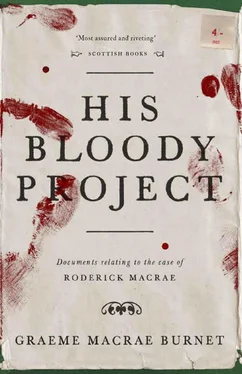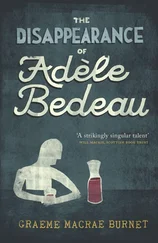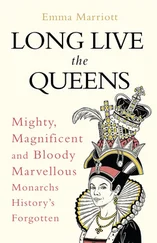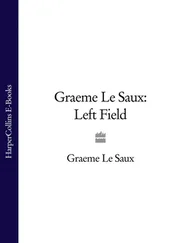Graeme Burnet - His Bloody Project
Здесь есть возможность читать онлайн «Graeme Burnet - His Bloody Project» весь текст электронной книги совершенно бесплатно (целиком полную версию без сокращений). В некоторых случаях можно слушать аудио, скачать через торрент в формате fb2 и присутствует краткое содержание. Год выпуска: 2015, Издательство: Contraband, Жанр: Современная проза, на английском языке. Описание произведения, (предисловие) а так же отзывы посетителей доступны на портале библиотеки ЛибКат.
- Название:His Bloody Project
- Автор:
- Издательство:Contraband
- Жанр:
- Год:2015
- ISBN:нет данных
- Рейтинг книги:5 / 5. Голосов: 1
-
Избранное:Добавить в избранное
- Отзывы:
-
Ваша оценка:
- 100
- 1
- 2
- 3
- 4
- 5
His Bloody Project: краткое содержание, описание и аннотация
Предлагаем к чтению аннотацию, описание, краткое содержание или предисловие (зависит от того, что написал сам автор книги «His Bloody Project»). Если вы не нашли необходимую информацию о книге — напишите в комментариях, мы постараемся отыскать её.
A brutal triple murder in a remote northwestern crofting community in 1869 leads to the arrest of a young man by the name of Roderick Macrae. There’s no question that Macrae is guilty, but the police and courts must uncover what drove him to murder the local village constable.
And who were the other two victims? Ultimately, Macrae’s fate hinges on one key question: is he insane?
His Bloody Project — читать онлайн бесплатно полную книгу (весь текст) целиком
Ниже представлен текст книги, разбитый по страницам. Система сохранения места последней прочитанной страницы, позволяет с удобством читать онлайн бесплатно книгу «His Bloody Project», без необходимости каждый раз заново искать на чём Вы остановились. Поставьте закладку, и сможете в любой момент перейти на страницу, на которой закончили чтение.
Интервал:
Закладка:
In the following morning’s edition of The Times , Mr Philby wrote:
It is a most irregular occurrence for the defence in such a case to rest on a single witness, but it must be admitted that the trial of Roderick Macrae is no ordinary event. What is at issue are not the facts of the case, but the contents of the perpetrator’s mind and, thus far, this is something few, if any, could truthfully presume to know. The prisoner has at all times conducted himself in a respectful and modest manner, such that it is quite impossible to imagine him carrying out the brutal crimes with which he is charged. Yet carry them out he did, and that one capable of such a frenzy could then sit quietly as a mouse for two days, speaks, to this observer, of a kind of lunacy not enumerated by Dr Hector Munro. A great weight thus rests on the shoulders of the eminent James Bruce Thomson, in whose hands the fate of Roderick Macrae rests.
Third day
Mr Philby was not alone in grasping the importance of Mr Thomson’s evidence. His arrival in the court-room was anticipated with more excitement than any point since the first appearance of the prisoner himself. Mr Thomson, dressed in a tight-fitting black suit with the chain of a gold fob watch traversing his midriff, took his place in the witness box with an air of great solemnity. According to The Times ’ man, he ‘cast a haughty gaze over the public gallery and then fixed, in turn, the judges, the Crown and defence with a no less arrogant air. The renowned alienist made it quite clear that he thought himself the principal player of this particular piece of theatre.’
The Lord Justice-Clerk brought the court to order and, once the formalities had been completed, Mr Sinclair commenced his examination by asking the witness to state his profession.
Mr Thomson: ‘I am Resident Surgeon to the General Prison for Scotland at Perth.’
‘And for how long have you held that position?’
‘Some fourteen years.’
‘And in that time how many prisoners have you examined?’
‘Around six thousand.’
‘And you have examined both the physical and mental condition of these prisoners?’
‘I have.’
‘And would it be to correct to say that you have given particular attention to the psychological state of the prisoners under your care?’
‘It would be correct.’
‘And would you say that you have some expertise in the study of the mental condition of criminals?’
‘Modesty aside, I would say so, yes.’
‘On what basis would you claim this expertise?’
‘In addition to my experience in examining prisoners, I have made an extensive study of the literature on this subject. I have been elected as a member of the Medico-Psychological Association and been invited by this body to read a paper on the psychological effects of prison on the inmate. My article on epilepsy among prisoners has been published in the Edinburgh Monthly Journal and I will shortly publish further works on the psychological and hereditary aspects of crime in the Journal for Mental Science .’
‘That is most impressive, sir,’ said Mr Sinclair. ‘And would I also be correct in saying that those criminals found unfit to stand trial on the basis of insanity are accommodated in your institution?’
‘That is correct.’
‘So, as well your large experience with what might be termed the general prison population, you have had a good deal of contact with the criminally insane.’
‘Indeed.’
‘And would you draw any distinction between the general prison population and those deemed to be criminally insane?’
‘There is a similarity in that criminals of both creeds to a great extent are without the moral sense. However, the habitual criminal is generally disposed towards crime by heredity, and is for the most part incurable. There now exists a criminal class which dwells in the over-crowded slums of our cities. These people are born into crime, reared, nurtured and instructed in it. It might thus be argued that such criminals cannot truly be held responsible for their actions, since they are born to them and are powerless to resist the tyranny of their circumstances.’
There was, observed Mr Murdoch, ‘something of the incantatory quality of the Free Church preacher in the rhythm and intonation of the alienist’s oration’.
‘And is it possible,’ asked Mr Sinclair, ‘to identify members of this hereditary criminal class of which you speak?’
‘Most assuredly.’
‘How so?’
‘Due to the filthy conditions in which these colonies breed and their lack of regard for the rules on consanguinity, there is often found among them abnormal states, such as spinal deformities, stammering, imperfect organs of speech, club feet, cleft-palates, hare-lips, deafness, congenital blindness, epilepsy, scrofula, and so on. All this usually accompanied by weakness of mind or imbecilism. Those born in crime are as distinct from an honest working man as a black-faced sheep is from the Cheviot breed.’§§§
§§§ The ideas expressed here by Thomson are more fully set out in his article ‘The Hereditary Nature of Crime’, published in the Journal of Mental Science, 1870. They are an example of the then prevalent theory of ‘degenerationism’, a kind of reverse evolution.
‘Now, is it correct that you travelled to Inverness to examine the accused in the present case?’
‘At your request, sir, I did.’
‘And did you examine the prisoner?’
‘I did.’
‘And what were the results of this examination?’
‘I found that in certain respects, he exhibited the low physical characteristics of the hereditary criminal class.’
‘In which respects?’
‘He is of less than average height; his skull is misshapen; his ears are abnormally large and pendulous. The eyes are small and close-set, and, as any observer can see, his brow is heavy and protruding. The skin is pallid and unhealthy, although this I would attribute to a deficiency of diet, rather than to any hereditary factors.’
‘And in your investigation into whether the prisoner should be regarded as a criminal through heredity, did you undertake any enquiries beyond this physical examination?’
‘I did. In your company, I travelled to the prisoner’s domicile in the village of Culduie in Ross-shire.’
‘And why did you feel it necessary to carry out this journey?’
‘As I believe I stated at the time, if one finds that one’s glass of water is foul, one must check the well.’
The Lord Justice-Clerk here intervened to request that the psychiatrist explain what he meant by this figure of speech.
‘I mean simply,’ said Mr Thomson, ‘that one cannot ascertain whether an individual’s characteristics have been passed to him by heredity merely from a physical examination. One must also check the source from which he has issued.’
Mr Sinclair: ‘And what were the findings of your visit to Culduie?’
‘The inhabitants there are generally of low physical stock, small in stature and generally unattractive in appearance, this no doubt engendered by the prevalence of inter-breeding attested to by the high incidence of certain family names in the area. The living conditions of the prisoner and his family I found quite unfit for human habitation, their hovel — I would hesitate to call it a home — lacking ventilation or sanitation and being shared with livestock. The father, with whom I conversed for some minutes, I founded to be dull-witted to the point of idiocy. The prisoner’s mother died in childbirth, a likely indicator in our modern era, of some congenital frailty. The prisoner’s sister had committed suicide, which is suggestive of some infirmity of mind running in this unfortunate clan. I did not have the opportunity to examine the younger siblings of the accused, those having been taken away to be cared for elsewhere. In summation, I would say without hesitation that the prisoner is derived from substandard physical stock.’
Читать дальшеИнтервал:
Закладка:
Похожие книги на «His Bloody Project»
Представляем Вашему вниманию похожие книги на «His Bloody Project» списком для выбора. Мы отобрали схожую по названию и смыслу литературу в надежде предоставить читателям больше вариантов отыскать новые, интересные, ещё непрочитанные произведения.
Обсуждение, отзывы о книге «His Bloody Project» и просто собственные мнения читателей. Оставьте ваши комментарии, напишите, что Вы думаете о произведении, его смысле или главных героях. Укажите что конкретно понравилось, а что нет, и почему Вы так считаете.












